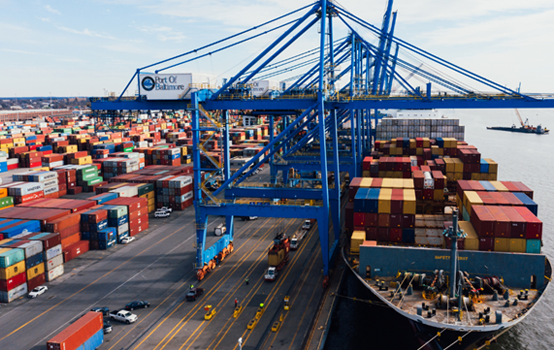The Recent Trade Agreement Could Mean Lower Costs and Clearer Supply Chains for Device Manufacturers
In a move that has been closely watched by manufacturers, regulators, and investors, the United States and China reached a partial agreement in early May to reduce tariffs on a broad range of industrial and consumer goods. For the US medical technology sector, the deal marks a turning point in a years-long standoff that has created persistent cost pressures and supply chain headaches.
Now that the initial dust is settling, US MedTech manufacturers are starting to evaluate what this shift actually means for business. Early signs point to a mix of short-term relief and long-term opportunity.
Easing Pressure on Components and Costs
One of the most immediate effects of the new trade deal has been the rollback of tariffs on critical imported components. This includes materials and parts commonly used in medical devices such as sensors, precision instruments, specialized plastics, and certain metals. These items had been subject to tariffs of up to 25 percent at the height of the trade dispute, a cost that was largely absorbed by manufacturers or passed on to healthcare providers.
With those tariffs now suspended or significantly reduced, some companies are already reporting lowered input costs. For MedTech startups and scale-ups in particular, this change helps create a more predictable financial outlook at a time when access to capital is tightening and operational margins are under pressure.
Supply Chains Stabilize but Remain Under Review
Manufacturers had previously been diversifying away from China to hedge against tariff volatility. While some of that activity is likely to continue, the new agreement gives companies more breathing room to rethink how they approach global sourcing.
Instead of rapidly exiting Chinese suppliers, many are adopting a hybrid model—maintaining key partnerships in China while investing in domestic or regional alternatives to improve resilience. This could mark a turning point where strategy replaces reaction in supply chain planning.
Industry Leaders Push for Long-Term Stability
Industry groups such as AdvaMed have praised the recent deal but are continuing to push for broader reforms. The organization’s CEO, Scott Whitaker, has renewed calls for a permanent “zero for zero” tariff policy on medical technology across all major trading partners. He argues that removing trade barriers on critical health technologies benefits not just the industry, but global public health.
Advocacy efforts are also focused on ensuring that carve-outs for essential devices and components remain in place, even if broader trade tensions flare again in the future.
Opportunities on the Horizon
While the current agreement is limited in scope, it has already begun to shift market sentiment. Some analysts expect the deal to accelerate investment in US-based MedTech manufacturing, especially in areas such as additive manufacturing, robotics, and AI-integrated devices.
Companies that had put capital investments or hiring plans on hold during the height of the tariff conflict are now revisiting those decisions. With interest in re-localization and reshoring still high, this may be a window for firms to strategically expand their domestic capabilities without the fear of sudden cost increases due to international disputes.
Final Thoughts
The trade deal between the US and China does not solve every challenge facing the MedTech sector, but it does signal a willingness to move toward greater cooperation. For US manufacturers, the lowered tariffs bring more than just cost relief—they provide a chance to reset and realign growth strategies.
As the situation continues to evolve, MedTech companies will need to stay agile, balancing international partnerships with domestic investment, all while navigating a policy landscape that remains complex but appears a little less uncertain.
Plan for What’s Next with MEDevice Boston
Tariffs shift. Markets change. But staying informed helps you stay ready.
Built for today’s challenges and tomorrow’s breakthroughs, MEDevice Boston is engineered to advance MedTech by connecting you with the people, insights, and tools to move forward—no matter the climate.
Want to keep up with how the industry is adapting? Join our email list for event updates and resources to help you stay ahead—whatever comes next.
Learn More With These Industry Resources
Academic and Industry Reports
- DelveInsight. (2025, April). US Tariffs 2025: Impact on Healthcare, Pharma Strategies. Retrieved from
https://www.delveinsight.com/blog/us-tariffs-2025-impact-healthcare-pharma-strategies - Medical Design Briefs. (2025, April). U.S. Tariffs: Implications and Strategies for Medtech Manufacturers. Retrieved from
https://www.medicaldesignbriefs.com/component/content/article/52950-u-s-tariffs-implications-and-strategies-for-medtech-manufacturers - Vamstar. (2025, April). Tariff Announcements on the Medical Devices Industry: A Global Supply Chain Analysis. Retrieved from
https://vamstar.io/newsroom/industry-reports/tariff-announcements-on-the-medical-devices-industry-a-global-supply-chain-analysis
Industry Statements and Press Releases
- AdvaMed. (2025, April 25). AdvaMed CEO Calls for 'Zero for Zero' Reciprocal Tariffs on Medtech with U.S. Trading Partners. Retrieved from
https://www.advamed.org/industry-updates/news/advamed-statement-on-todays-tariff-announcement - AdvaMed. (2025, April 25). AdvaMed Statement on President's Reciprocal Tariff Pause. Retrieved from
https://www.advamed.org/industry-updates/news/advamed-statement-on-presidents-reciprocal-tariff-pause
News Articles and Media Coverage
- Medical Economics. (2025). AdvaMed CEO calls for tariff-free trade in medical technology. Retrieved from
https://www.medicaleconomics.com/view/advamed-ceo-calls-for-tariff-free-trade-in-medical-technology - MedTech Dive. (2025). AdvaMed CEO Scott Whitaker pleads for tariff relief in Senate hearing. Retrieved from
https://www.medtechdive.com/news/AdvaMed-Scott-Whitaker-Congress-tariffs/748171
Additional Resources
- AdvaMed. (2025). 2025 Reciprocal Tariffs and Trade. Retrieved from
https://www.advamed.org/member-center/resource-library/2025-reciprocal-tariffs-and-trade - Associated Press. (2025). Report on Johnson & Johnson's tariff-related expenses. [Referenced in Medical Design Briefs]







